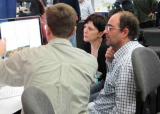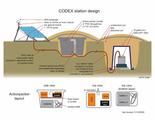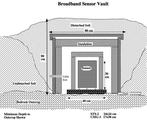
Late-stage graduate students! Postdocs! Researchers and faculty!
IRIS/PASSCAL Instrument Center would like to invite you to register for our PASSCAL Users Workshop to be held on Sunday December 14th, 2014 (the day before the beginning of the AGU Fall meeting).
This year’s workshop will give an overview of the PASSCAL facility, the services we provide and how to access them. We will have two special guest speakers, PIs who have successfully planned for an run international and large-scale PASSCAL projects. This year's speakers are Anne Meltzer of Lehigh University (large-scale broadband deployments in Pakistan, Tibet, and Mongolia) and David Okaya of the University of Southern California (large active source projects in Taiwan, New Zealand and Japan).
But wait, there is more! The PASSCAL Program Manager, Kent Anderson, as well as the PASSCAL Director, Bruce Beaudoin, will be on hand for questions and discussion as well. Ask questions and discuss ideas about current/future projects before AGU really starts and the talks, posters, dinners, and other meetings start clamoring for everybody's attention and time!
This workshop will be useful to anyone who has an upcoming PASSCAL supported experiment, or is planning to propose an experiment, and will be particularly useful to current graduate students and new investigators.







